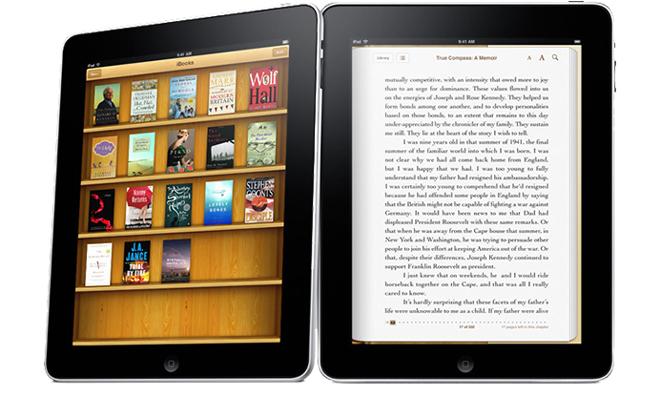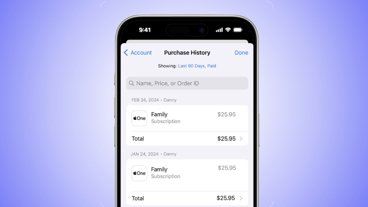Ahead of its push for iPads in education initiative, Apple has updated the App Review Guidelines document, adding new sections and regulations specifically targeting child safety.
Among the changes to Apple's App Review Guidelines, first reported by MacRumors, is a new rule pertaining to the U.S. government's expansion of the Children's Online Privacy Protection Act (COPPA).
The federal statute dictates what information websites and similar entities can collect about a child under the age of 13 with consent from a parent or guardian. Apple's regulations bring the App Review Guidelines up to date by disallowing developers to harvest photos, video or audio of an underage user.
17.4 Apps that collect, transmit, or have the capability to share personal information (e.g. name, address, email, location, photos, videos, drawings, persistent identifiers, the ability to chat, or other personal data) from a minor must comply with applicable children's privacy statutes.
A completely new section describes limitations in respect to apps made specifically for young children. Developers cannot include targeted ads and must ask for permission from parents before linking out of the app.
Finally, the new rules add limitations to gambling apps, especially those that offer in-app purchasing for game credits or currency.
The additions and adjustments comes ahead of Apple's iPad in education push, which recently saw the company open up iTunes accounts to children under 13 years old. Previously, iTunes restricted pre-teens from holding personal accounts.
 AppleInsider Staff
AppleInsider Staff








 Charles Martin
Charles Martin
 Christine McKee
Christine McKee
 Wesley Hilliard
Wesley Hilliard
 Malcolm Owen
Malcolm Owen
 Andrew Orr
Andrew Orr
 William Gallagher
William Gallagher
 Sponsored Content
Sponsored Content








8 Comments
Unsurprising, none of these changes include "Stop blatantly ripping off children through in-app purchases."
Unsurprising, none of these changes include "Stop blatantly ripping off children through in-app purchases."
Shouldn't parent's take care of that by ensuring the itunes password remains a secret to them alone ?
I agree that parents should take better care when handling passwords, but I also think that there should be more regulation on the ability to make in app purchases whether this could be switched off on set up of the app or through settings.
Shouldn't parent's take care of that by ensuring the itunes password remains a secret to them alone ?
Because somewhere out there, there is a child that needs to spend $99 on a wheelbarrow of huckleberries.
If they could make (a section of) the App Store totally safe for kids, they could get a monopoly in the education market. It's something that a non-curated app store just can't match. It's a market that plays to Apple's strengths.